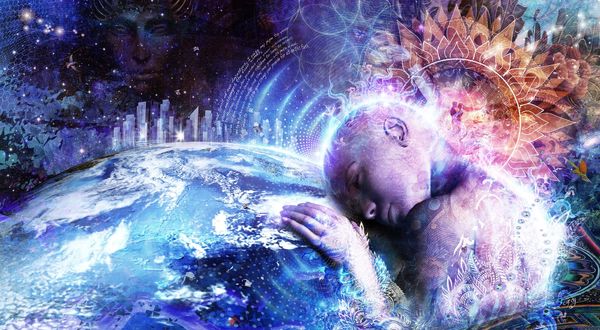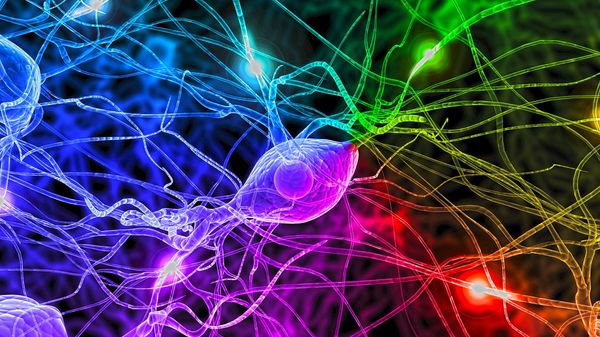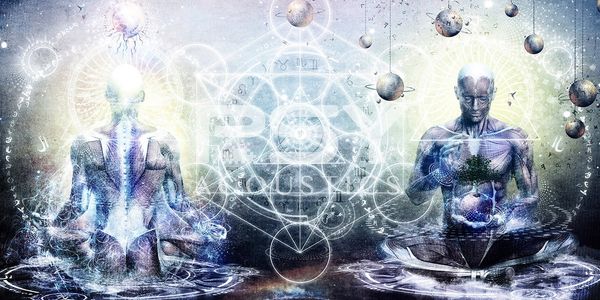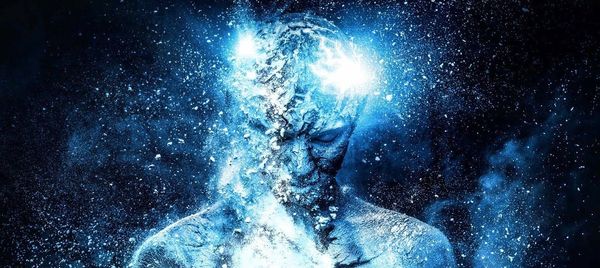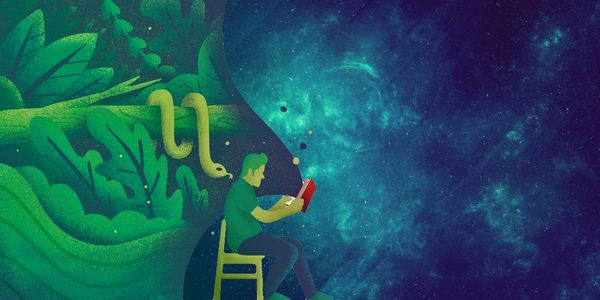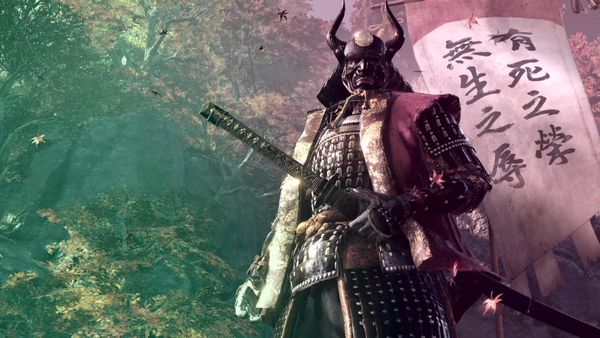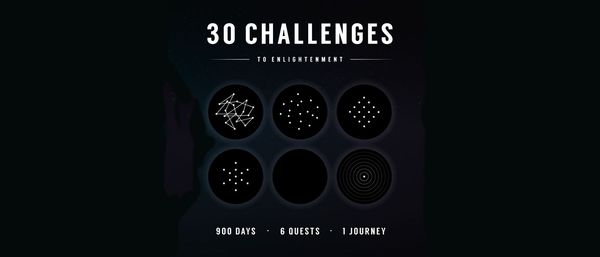Martijn Schirp • • 4 min read
The Dark Side of Self Improvement
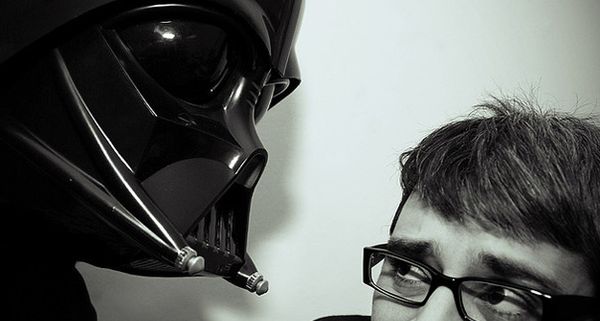
We’ve all been raised on television to believe that one day we’d all be millionaires, and movie gods, and rock stars, but we won’t. We’re slowly learning that fact. And we’re very, very pissed off. -Fight Club
The total self-improvement industry in the United States was worth $10.53 billion in 2010. Compare this to the $5.7 billion in the year 2000. According to John LaRosa, research director of Marketdata Enterprises, Inc., a leading independent market research publisher “there is no shortage of demand for products and programs that cater to Americans’ desire to make more money, lose weight, improve their relationships and business skills, cope with stress, or obtain a quick dose of motivation.” And there are more than enough products and programs out there to meet this demand. Telling you what to eat, think, train and learn. “Six Ways To Battle Stress!” “10 Tricks To Build Confidence”, and my favorite so far, “The 7 Habits of Successful Self-Improvement”. Have we become overly obsessed with bettering ourselves?
Once you accept the fact that you’re not perfect, then you develop some confidence. -Rosalynn Carter
The will to grow beyond what we have mastered already is one of the great human drives. Without it we wouldn’t have philosophy, spiritual practices, science or technology. While HighExistence is full of improvement articles, and my bookshelves contains dozens of quick fix books, I do think it is important to investigate our motives for having this desire. Too often that desire stems from the belief there is something wrong with us. The dark side of self-improvement is that it feeds on our insecurities. If only I were x, could do y, looked like z then I would be confident and accept who I truly am. These crippling selfjudgments we make fuel addictions, loneliness, eating problems and perfectionism. In turn we combat these symptoms with the newest Band-Aid solution, another self-help program. But that never gets us any closer to the root of the problem.
It is no measure of health to be well adjusted to a profoundly sick society. -Jiddu Krishnamurti
This root grows deep. Hating parts of the self is a symptom of a sick society. We all do it. If we compare the list of what we like about ourselves with the list of what we would like to change, the difference becomes quite evident. If we investigate closely, we will find we are living in a society that outright demands us to measure up to non-existent ideals. If they did exist, we could live up to them and there wouldn’t be any insecurity left to feed on.
We’re consumers. We are by-products of a lifestyle obsession. Murder, crime, poverty, these things don’t concern me. What concerns me are celebrity magazines, television with 500 channels, some guy’s name on my underwear. Rogaine, Viagra, Olestra. -Fight Club
Let’s use the female beauty ideal as an example here since it so persuasive in the way we treat half of the worlds population. The models we see hundreds of times a day in advertisements, photoshopped to look as pretty as we can (humanly) be. We consciously know people don’t look like that real life but unconsciously, we believe it. Our brain didn’t evolve to distinguish between glossy pictures and faces of flesh and blood. And with enough of this fantasy propoganda, we can’t help but feel like there is something wrong with us. Ofcourse there are unlimited products we can buy to close the gap between reality and fantasy and live under the paradigm that it is just ‘normal’. But does this really solve the problem?
My life has been full of terrible misfortunes, most of which never happened. -Mark Twain
I love this quote. It hints so eloquently at the gist of the problem. The problem of our inner judge that constantly keeps reminding us that our best is not good enough. Nothing is ever good enough. Tara Brach says that the burden of not feeling worthy lies at the core of our suffering. And while these self-improvement tools work like temporary shells that protect us, they eventually wear out. You wake up without make-up and you don’t like what you see. And as long as the solution to that is fighting the symptoms, putting make-up back on, you are cutting the weed but not the root. Without true self-acceptance, the dissatisfaction will grow back. You don’t see that you are already beautiful and that change is optional, not mandatory. If we would stop being so harsh on ourselves and show some compassion for our own mistakes and imperfections, we would be more at ease and improve in areas that are truly beneficial instead attempting to live up to an illusion.
In clinical psychology and positive psychology, self-acceptance is considered the prerequisite for change to occur. -Wikipedia
Shame has evolved to facilitate cohesion in a group. Do something that is harmful to the groups well-being and you’ll learn not to do it again. This was conducive to society until the modern media era came around. It is the phantom that constantly tricks everyone. Thou shalt be perfect! If not, hide your imperfections, run from them, feel ashamed! But I say to you, be yourself, accept yourself, have faith in yourself. Gather your courage! Judging is easy. Accepting is for the brave.
To sum up, there are two aspects you can spot if self improvement is the wolf in sheep’s clothing for you. The first: is the reason why you eagerly keep searching for new and better strategies to change something because you want to become the perfect you? If yes, there is a parasite feeding of your believe in false promises and non-existent ideals. This can be easily cured to review your goals while being perfectly honest with yourself. Is it realistic? How many people are able to reach that goal? Would I be happy if I tried or only if I actually attained it?
The second: is the reason why you want to change some part about yourself linked to the fact you are not accepting that part right now? Do you judge yourself often? If yes, you don’t truly accept yourself, and probably you don’t accept other people as they are either. Because this aspect has been so ingrained in our culture it is very hard to let go of the inner judge. The most important thing is to never forget you are good enough and loving yourself is the most important personal trait you can ever develop.
For more information check out:
Century of the Self BBC documentary
Radical Acceptance: Embracing Your Life With the Heart of a Buddha
Photo by teban32


